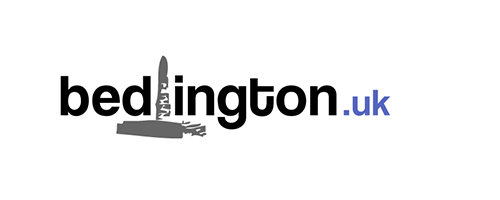Contributor Leaderboard
Popular Content
Showing content with the highest reputation on 20/04/12 in all areas
-
Hi, I am excited to announce that the first Bedlington and Morpeth Clandestine Cake Club event will take place this Thursday. I managed to get a room at the community centre and currently have around 6 cakes with 12 in attedance. The enent is now full, but if you would like to attend at a future event, please register at www.clandestinecakeclub.co.uk and search in Clubs for the Bedlington and Morpeth Group! I will hopefully be able to post the write up and photo's on here for you's to have a nosey at. I am really hoping that Bedlington business' get involved as I currently have interest from 5 business in Morpeth and 2 in Stakeford. I think I will need to do some walk in visits shortly. Diane1 point
-
I think we may be talking at cross purposes here Mercury. When I say that there is not one word in the English language which is unnecessary I am speaking totally from a linguistic point of view. From that view a word is an entity which has form, function and meaning and even the taboo words fill these basic criteria. They can be spoken and written, therefore they have a form. They fulfill several functions, among them expression of emotion, substitution for aggresive bodily response and group affiliation, as I mentioned earlier. They also convey a meaning to the listener/reader. If a word fills these criteria then it has a justifiable place in a language, albeit in a very small niche. That word can help somebody, somewhere to communicate what he/she is feeling, thinking or affiliated to and is therefore is necessary part of a language for just that person. That doesn't mean to say that there aren't words other than swearwords which could do the job equally well and all else failing the English language abounds with euphemisms for the majority of its swearwords ( I belive the c-word had around 700 at the last count). Neither does it mean that I condone the use of foul language in public places or outside of the group in which it is a marker of affiliation. You are a professional writer and that leads me to believe that you are fortunate enough to have at your disposal a vocabulary which is probably larger than the average. However, everybody is not so well blessed. Like you, I also despair at the use of superfluous and unnecessary words and phrases that make their way into the mainstream press. I can agree that a superfluous word is unnecessary but then I'm not speaking from a linguistic point of view - rather from a literary one. As for taboo words in pubs, I don't agree. Again from a purely linguistic viewpoint, swearwords have a place as a social marker if the landlord hasn't set any boundary for what is acceptable and what is not. The landlord/lady may well wish to encourage a certain type of customer and use the same type of language him/herself, in which case the swearing would be acceptable as it wouldn't be occurring in the wrong situation. You could say that landlord and the guests who swear are all part of the same social group and those guests who found it unacceptable would go elsewhere. If, on the other hand, landlord does not want swearing in his pub - as in Chris' case - then it's up to him to make explicit the unwritten understanding of what's taboo by correcting or commenting on the language of his guests thereby making it clear to the user that taboo words are not acceptable in the pub. That leaves the user free to decide if he wants to modify his language during his visit or leave the pub. Hope this has explained how I was thinking.1 point
-
Mercury, believe me when I tell you that there is not one word in the english language, or any other for that matter, which is unnecessary, not even the taboo words as even these have a function. By 'taboo words' I mean those dozen or so words that people avoid using in public because they think of them as harmful, embarassing or just plain offensive. Some might call them swearwords others might call them abuse.There is a lot of research both within linguistics and psychology which shows that there is a place within each language for these words and that in the right place they are totally acceptable in that they have a function (research has shown for example that swearing can be just as effective in pain management as traditional analgesia)! That which can at times be wrong, however, is the situation in which these words are used. Taboo words, abuse and swearing are not necessarily the same thing, though the three can overlap at times. However, swearing is often used as an all encompassing label for many kinds of bad language - whatever its function - but from a purely linguistic point of view swearing refers to a strongly emotive use of a taboo word. It's an outburst which gives release to a surge of emotional energy. It has a function as a substitute for an aggressive bodily response and it can express a wide range of emotions from annoyance through frustration to anger. Swearing isn't however confined to being an emotional response. Swearing has been shown to have a well defined social function. On the one hand it can be used to mark social distance such as showing contempt for social convention by swearing loudly in public or writing obscene graffiti on walls. On the other hand swearing can also be used to mark social solidarity, that's to say a whole group takes on identical swearing habits. i think it's this phenomenon you are seeing in the pub Chris so you are not too far from the truth when you say that "foul language and fashion are the order of the day". When anyone joins a new group they are, consciously or otherwise, very much influenced by the group's language - swearing included. If the gang swears and you want to be one of the gang you swear too. There's plenty of research to support this. There is however one very significant difference between the two types of swearing I've mentioned. Swearing as a marker of social solidarity, by far the most common, is dependant for it's effect upon an audience and furthermore it has been shown to diminish in the presence of non-swearers. You, Chris, think that bad language can be attributed to "a lack of education and the failure of multiple governments since the 1970's to police and to keep the English education standards high". A certain amount of prohibition in the use of swearwords does already exist in the English language. At times that prohibition is quite explicit. In the law courts, for example, it's called 'contempt of court'. In the houses of parliament it's called 'unparliamentary language' and in the media there has long been a group of words which are officially banned until after a certain time in the evening in order to prevent children being exposed to them. Even in everyday language there is an unwritten understanding of what's taboo between people and this at times becomes explicit in the form of a correction or a comment by the listener or even the user himself/herself. I should mention here that what's taboo for one person may not be taboo for another, as the situation in the Black Bull bears witness to. That is to say, a mild expletive like !*!@# may not be considered as swearing by someone who allows the c-word to roll off their tongue at the drop of a hat. Because of this it's not always clear to the user of taboo words whether or not he/she is being abusive or offensive. I cannot agree with you Chris when you say that lack of education and governmental 'policing' on the language front is the cause of the sittuation you describe. The real problem, I believe, is that we ordinary people have lost the ability to make explicit that unwritten understanding which I mentioned earlier. In other words, we simply don't point out for people, in a nice manner, when their swearing is not acceptable. It doesn't need a school education. Both inside and outside the schools we'll still have social groups forming. Some of these will inevitably swear.´and if they don't know they are offending people, and nobody marks the boundary between acceptable and unacceptable they will continue. You, as a landlord, have the perfect opportunity through your regulat´r contact with young people to point out for them that language needs at time to be modified to suit the surroundings, that swearing is not always acceptable, that you and other customers are offended by it and that it is undesirable in your pub. If you make it known that you neither like nor accept bad language in the Black Bull then your regulars will modify their language accordingly. Of course you may lose the odd customer but on the other hand you'd be making way for people like Mercury who prefer a pub without coarse language. It's a win-win situation for you. On a parting note, (thank goodness I hear you saying!), I must just add that my sentiments lie with Foxy. I agree wholeheartedly that it was a mistake, or even totally wrong, on Chris's part to tar everybody with the same brush in relation to their drinking and swearing habits. Mercury doesn't appear to belong to that group - and presumably many others with him, unless the Red Lion is managing to stay solve´nt with only one customer.1 point

.thumb.jpg.7493ddab4a696108cf2b849323d3c155.jpg)
